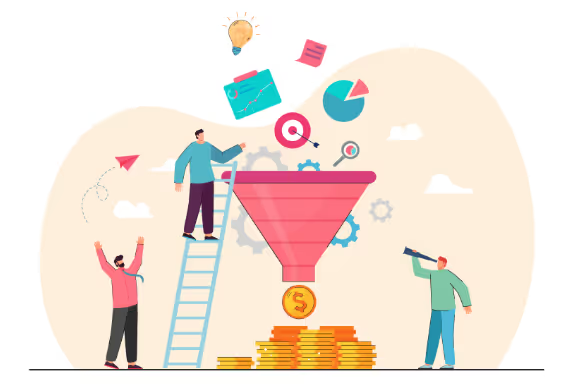
Blog
Retain Customer Loyalty | Incentivize your Customer Success Org
May 30, 2022


Key Insights
Any sales leader will agree that continued business from an existing customer is as important as acquiring new ones. This is true especially for the service industry and to some extent software products based industry. You sell a product or service promising the world to the customer, but if the customer is not able to put it to efficient use, it is only your loss.
Here, enters your customer success teams. Customer success teams work with the customer on a long term basis, is what we call business as a relationship. Customer success teams are focused on ensuring that your product adds value. They then have to obviously liaise with product engineering and support teams in case there are product or service-specific issues. They ensure the product or service is put to optimum use and deliver success at the end of the day. This not only ends up with a happy customer, but it also ensures you get continued business through multiple sales cycles, and if you are lucky an ever-increasing portfolio.
You probably must have figured out by now the importance of a customer success team. You may already be having an efficient customer success team. Like the sales team, you have to keep this team on their toes, keep them engaged and incentivize their performance to ensure customer loyalty.
So how do you incentivize your customer success team? How do you design the ideal compensation plan for your customer success team? In the sections that follow we take a look at some of the best practices to keep your customer success team motivated for continued business.
Incentivize Customer Success Owned Renewals
A very pertinent question when it comes to incentivizing customer success teams is what metric should be used. There is no doubt that the customer success org should own the Gross Retention Rate (GRR) also known as Gross Renewal Rate. GRR is simply the difference between the total value of contracts renewed and the number of contracts churned. Without including the expansion element, this metric measures how well your customer success team has managed to retain and renew existing contracts. This obviously reflects well on how the customer success team has contributed to driving your product or service while also generating value for the customer.
Now should renewals be entirely owned by customer success teams/managers? It all depends on how your business is modelled and the kind of customers you cater to. If you are selling your products and services to small businesses, where renewals are simple and straightforward, you can let the customer success team do the heavy lifting of renewals. However, for larger accounts with significant annual sales a collaborative approach involving both sales and customer success teams may be more effective. By contrast, if you have enterprise clients, you must allow customer success teams to focus on their core role as trusted advisers. With enterprise selling, you can have an account manager pick up the tab of renewals.
So what exactly should the incentive plan look like?
There are two approaches you can take to incentivize customer success managers or teams. You either incentivize them using a variable pay model, or you let them have a bonus.

Source:https://www.clientsuccess.com/blog/compensation-plans-for-customer-success-managers/
Typically you will find the bonus model employed over larger team performance. The better a customer success team is on renewals over a period of saying a quarter or a year, the higher their bonus payout.
If you think your current business model demands a greater grip on retention and renewals you can move to the variable model for customer success teams. One that incentivizes customer success managers to not only hit their targets but also overachieve.
Incentivize Expansion through Customer Success
If your product or service deals with complicated and multi-layered solutions, you will need to have your customer success team to be always on the lookout for account expansion. While it is the responsibility of the customer account manager when it comes to large enterprises the groundwork is always done by your customer success teams. In such cases keeping a fair bit of compensation reserved for account expansion goals, is the right approach.
Account expansion is not a short term process. Clients may often want to look at the results of current and ongoing solutions before they allow a vendor or service provider to expand their footprint. Moreover, it is more of a team effort than individual performance. It only makes sense then to incentivize this activity using the bonus model we discussed earlier.

Conclusion
Incentive compensation management solutions are a great way to begin on incentivizing customer success teams. These solutions provide enough and more templates to start off your customer success team on the right note. Kennect offers a robust, transparent and real-time incentive compensation management solution. Incentive Compensation Management from Kennect lets you build customised compensation plans and bind it seamlessly with performance management.
To understand how you can get started in minutes, ask for a demo today.
ReKennect : Stay ahead of the curve!
Subscribe to our bi-weekly newsletter packed with latest trends and insights on incentives.
Thank you! Your submission has been received!
Oops! Something went wrong while submitting the form.
Your data is in safe hands. Check out our Privacy policy for more info















